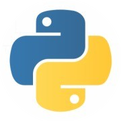Common Encryption and Decryption Algorithms in Web Scraping
Introduction This article summarizes various common encryption algorithms and encoding algorithms used in web scraping, detailing their principles and basic implementation methods in JavaScript and Python. When encountering JS encryption, you can quickly restore the encryption process. Some websites may have additional processing during encryption, but the general methods are similar. Common encryption algorithms: Symmetric … Read more









